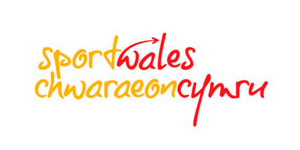WSA respond to Senedd Committee report into impact of funding reductions for culture and sport
The Welsh Sports Association (WSA) welcomes the publication of the Senedd Culture, Communications, Welsh Language, Sport and International Relations Committee report into the impact of funding reductions for culture and sport.
The committee’s work was initially triggered by the substantial headline cuts to the culture and sport budgets in the 2024-2025 Welsh Government budget. In which both Sport Wales and Arts Council of Wales received a 10.5% cut to their revenue budgets. Rightly, the committee has also considered the historic landscape – we know that over the fifteen years from 2010 to this year, Sport Wales received a real terms increase to its revenue budget just twice.
As it stands, if the draft budget for 2025-2026 is approved, the direct investment into sport in Wales by the Welsh Government, channelled via Sport Wales as revenue spend will be £4,547,000 lower in cash terms than it was in 2010. Adjusted for inflation, the real gap is approximately £18,700,000 lower than in 2010.
Recent years have, in fairness, seen Welsh Government substantially increase the capital allocation into Sport Wales in the last five years, rising to £10,000,000 in the 2025-26 draft budget. This allows for increased investment in key areas to improve the sustainability of the sporting estate.
However, if the capital and revenue budgets are combined, the direct investment into sport via Sport Wales is approximately £8,700,000 lower than if the levels of investment in 2010 had increased in line with inflation.
Thanks to the committee’s comprehensive overview, it is confirmed this is the third lowest spend per capita of comparator nations, and the lowest amongst the home nations of the UK – something that the WSA have consistently pointed out over recent years.
The Senedd committee were correct to point out that this direct investment doesn’t tell the entire story. Substantial amounts of sporting activity in Wales rely on the provision of safe, accessible and well-maintained infrastructure by Local Authorities – from leisure centres and grass pitches, to parks, artificial pitches and other playing surfaces.
Because this provision is not a legal expectation of our councils, their squeezed budgets have meant that investment in operations, maintenance, refurbishment and new build has dropped substantially over the past decade. The increased capital funds available to Sport Wales do not approach the size of the gap that has been created by this slow erosion of public support.
Alongside this, changes in usage patterns and increased running costs have seen major increases in prices to access facilities, service reorganisation or even closure.
In short, we are spending less money on encouraging people to participate in sport, whilst also creating a landscape in which it’s harder and harder to access places where participation is free or cheap, and most importantly safe and welcoming. All the while, our population continues to experience on average poorer physical and mental health than elsewhere in the UK or other comparator nations.
In this regard, the successful National Exercise Referral Scheme (NERS) offers opportunities to increase the links between the health service and the provision of sport and leisure. Revising the fees for NERS as the committee recommends would provide crucial financial support for leisure services and support the NHS in increasing the number of people who are regularly physically active – helping to prevent the need for costly acute treatment.
Over the last decade or more our expectations of what sport can and should deliver have transformed – both in very crude legalistic terms, but also in terms of the wider social goals that sport can (and should) contribute to. Environmental, Social and Governance expectations are rightfully tighter than they have ever been. On diminishing resources, sporting organisations are having to precariously balance all these expectations.
If Wales wishes to maintain its proud sporting history, continue to compete on the World stage, and inspire and enable our citizens to enjoy healthy and active lives, this long-term downward trend must be reversed. Sometimes it is all about the money.



















